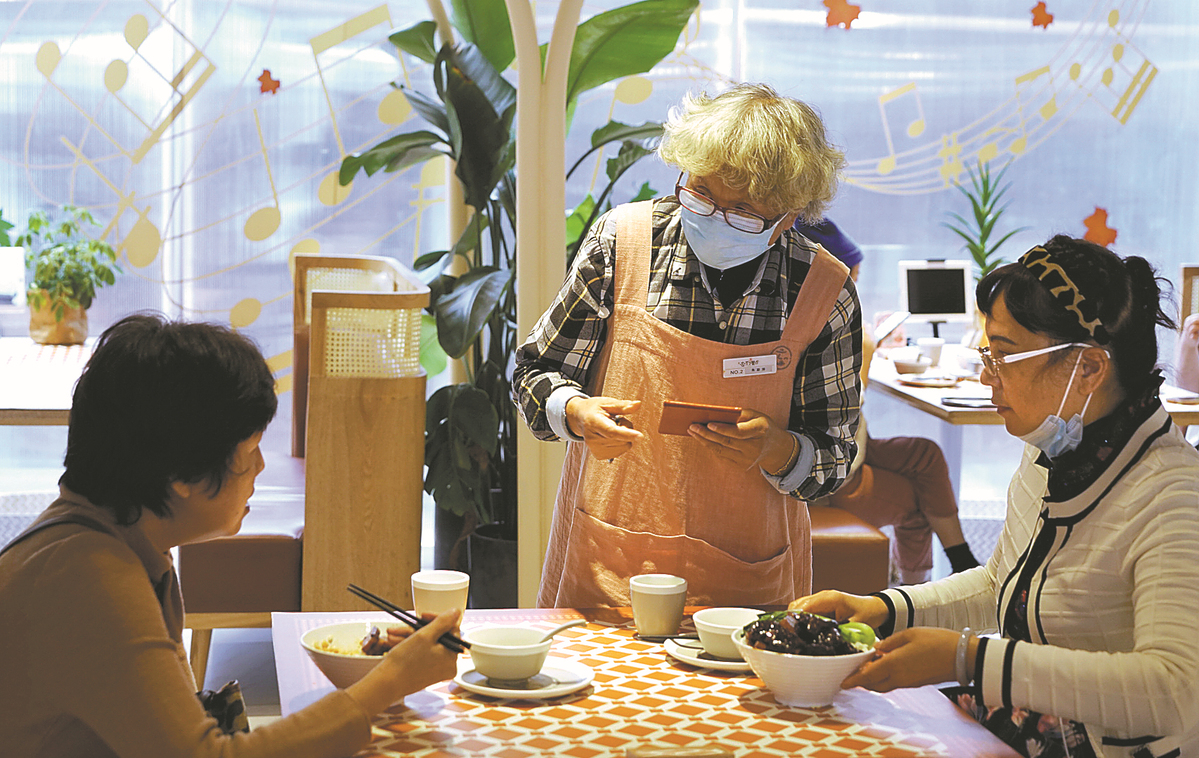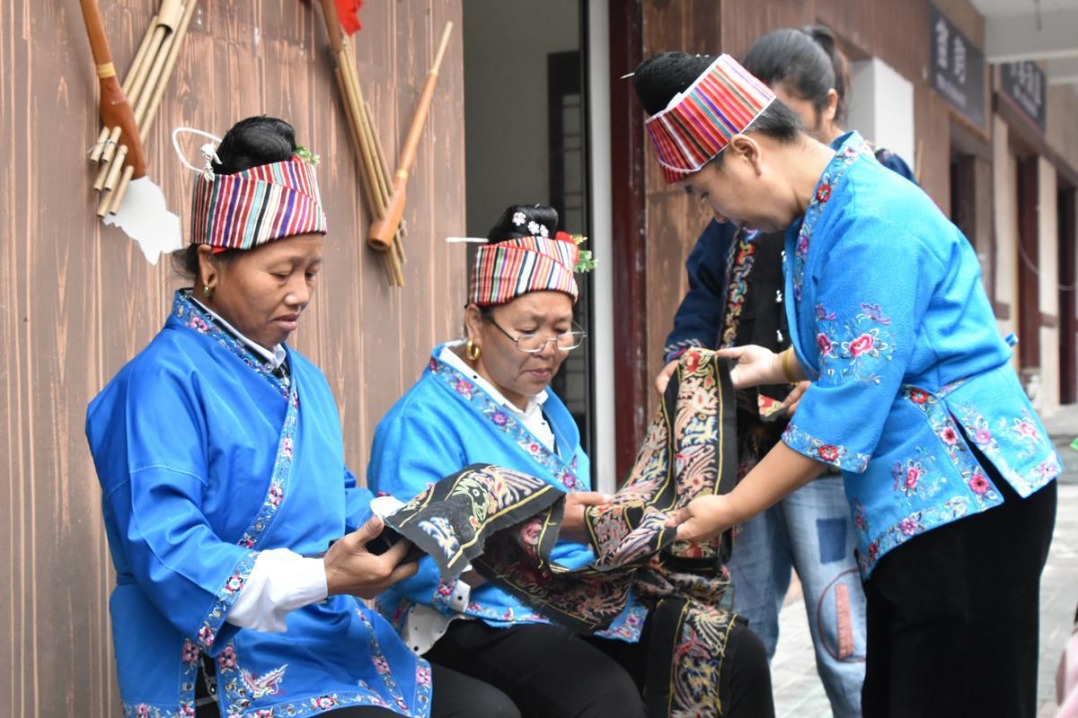Shanghai cafe has a warm place in community's heart


When Zhu Caiping, 73, was diagnosed with mild cognitive impairment three years ago, she found that anxiety, depression and even looking down on herself became normal in her life.
It was not until last year, after she participated in a reality show and became a restaurant server, that her situation began to improve dramatically.
The restaurant in Shanghai where she works is the Forget Me Not Cafe, a bricks-and-mortar spinoff of the reality show of the same name. The restaurant shares the reality show's goal of providing job opportunities for elderly people who have Alzheimer's disease or other cognitive impairments.
The cafe has eight elderly employees with cognitive impairments who take turns working with other waiters to help customers.
"I provide basic services for guests, such as pouring water, serving and taking orders. I can now remember all the dishes on the menu," said Zhu, who has come to the restaurant three times a week since February and works three hours a day.
"The colleagues take good care of us. They never allow us to deliver hot dishes such as soups. The guests are also very tolerant of us, because sometimes we make mistakes," she added.
In addition to providing services, the elderly employees participate in welfare activities organized by volunteers, such as baking, dancing and learning English. Other elderly people with cognitive impairment are also invited to participate.
"These activities are essential for me. They reactivate my brain," Zhu said. "What old people like us worry about most is that our brain stagnates due to being inactive."
Because of memory loss, Zhu writes down all the information she wants to remember on sticky notes, such as the names of the volunteers and the teacher, as well as English words.
"But I really became happy and confident because of being here," she said.
Understanding the painful difficulty of cognitive impairment and Alzheimer's disease, Zhu wants to help elderly people in a similar situation.
"There are many seniors with similar conditions who visit us accompanied by their families. I will pay special attention to them, because I used to have the same feelings as they do," Zhu said.
She recalled one customer in particular, a 58-year-old woman from Jiangsu province, whose husband brings her to the restaurant.
"When she came here for the first time, she barely said a word and was expressionless and indifferent. I told her that she must speak and communicate, and I left her homework every time with rewards," Zhu said.
The woman has since come to the restaurant every Friday, and after several months, her condition has improved.
"She started to comment that the food was 'delicious' and to talk to others. Moreover, she began to embrace me every time," Zhu said.
"People with cognitive impairment actually refuse and fear to communicate with society, but this will aggravate their condition," she added. "Helping more people like us is the meaning of this restaurant and what I am eager to do most."
In addition to the job opportunities for the elderly, information about cognitive impairment and Alzheimer's disease is posted on a board outside the restaurant to help people recognize symptoms and seek treatment as soon as possible.
Zeng Rong, a co-founder of the restaurant, said the reality show Forget Me Not Cafe has had a great impact on elderly people with cognitive impairment. "I can see that the elderly participating in the show have obviously changed."
As China faces an aging population, the increasing number of seniors with cognitive impairment has become a significant social issue.
According to the seventh National Census last year, 38.77 million people ages 60 and over in China have been diagnosed with cognitive impairment, including 9.83 million patients with Alzheimer's disease.
With the deterioration of brain function, they may gradually lose memory and the ability to take care of themselves, and might even see the loss of emotions.
"We should feel lucky that the whole of society is concerned about the seniors, especially for people like us. The neighborhood committee always checks on our situation and watches for other elderly people with symptoms," Zhu said.
Shanghai is also home to other eateries that provide help and support for vulnerable groups.
Last year, the cafe Hinchijou went viral after word spread that half its employees have disabilities, especially hearing impairment. Also known as the Bear Paw Cafe, it features a hole in a wall through which a furry bear paw serves coffee to customers and protects the employees.
In 2018, A-Coffee was established in the city, training people with autism to become professional baristas and waiters and providing them with opportunities for social interaction.
"The popularity of these special cafes and restaurants shows that many people in the city pay attention to public welfare, which is the embodiment of Shanghai's soft power," said Lyu Xiaohui, who is on the standing committee of the Xuhui District Committee and is director of its publicity department.
"We have good public welfare and volunteer organizations," Lyu added. "The government does a good job in planning and services, and residents are enthusiastic about participating. Together, these add to the warmth of our city."
- Employee sorry for leaking pop star's rehearsal clips
- Shanghai ready for 2025 version of E-sports Masters
- New 'eco-police' system to be set up by 2027
- Hebei cooperative's cabbage proving a hit across China
- Kunming rail accident spurs safety overhaul nationwide
- Embroidery proving major draw at bustling Guizhou market





































